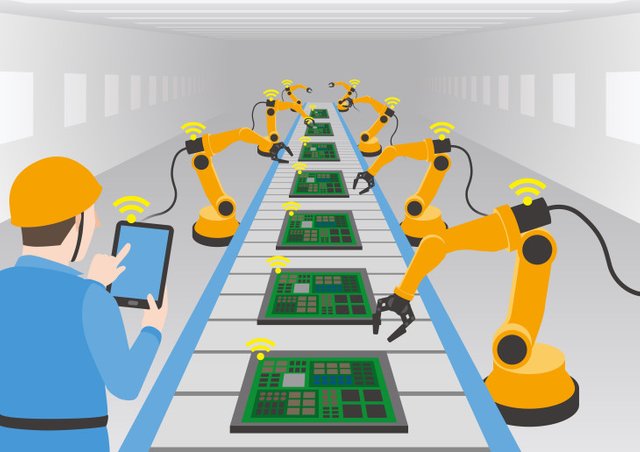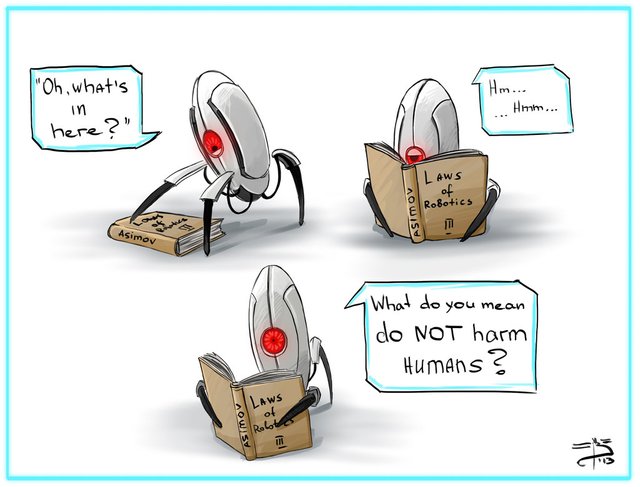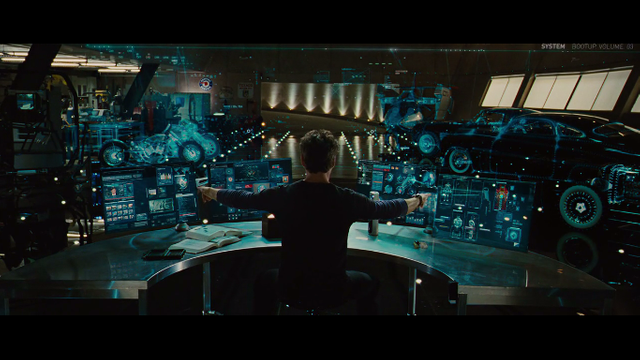There’s nothing better than fine tuning your sorting system or perfectly aligning all of your gathered items in your Fallout 4 home. The sense of achievement when you maximize the amount of things you can craft from the ore you gather or the joy you get from designing a super efficient energy production system is hard to beat.

Here I will look at four reasons for why this is so satisfying.
1: Once its done its done
2: Simple rules
3: It actually saves significant time
4: It makes you feel clever
Have you ever played a game that involves automation? If you have you will already have an idea of what i'm going to talk about. If not check out this very simple browser game:
http://www.decisionproblem.com/paperclips/

Universal paperclips is an incredibly designed game that starts with you clicking a button to make a paper clip out of some wire. If you click the button a few times you will find that you have made several paperclips and that occasionally people buy your paperclips and you make money. As time progresses, and you ve made a few more paper clips, you unlock the Autoclipper. The autoclipper will automatically make one paperclip per-second from the wire that you buy. The aim of the game is intergalactic domination via your paperclip empire. My wife and I spent an entire evening and into the early hours playing this game as the crazy levels of automation are pretty addictive. I wont say too much more as I don't want to spoil the game. Let me know how you get on.
Factorio is the archetypal automation game. The player has crash landed on an alien world with nothing but a mining drill and a smelting oven. From this they are supposed to create a factory that gathers iron, copper and coal, converts them into ingots, circuit boards and conveyor belts and eventually be advanced enough to build a spaceship to escape the alien planet. Other examples of games with automation are subnaughtica, minecraft, TTD and many clicker games.
1: Once its done its done:
The problem with the real world is entropy, the second law of thermodynamics. If you’ve ever tried to keep your bedroom tidy you’ll know what Im talking about. Everything in the universe tends to disorder. No matter how much energy you put in, given enough time, order will return to chaos. If you set up an awesome sorting system for your clothes or for food in your cupboards then you have to choose to maintain this system every time you put the rice back. You have to place it at the back where you were supposed to rather than throwing it in randomly wherever there is space.
Computer games are based on programing. Once you set a program in motion, it will continue until it is told to stop. In factorio you can set up chests that will only receive iron ore and other chests that will only receive copper ore. Once you’ve set up your sorting system you can just dump everything onto a conveyor belt and let the system sort it for you. How nice it would be to be able to do this with the shopping once you get home from the supermarket.
2: Simple Rules:
 Source
SourceThe real world has millions, if not billions, of different things in it. Even things that are technically the same differ in small ways. Yes you could organise a system that sorts your apples into one bowl, oranges into another and bananas into a third but some apples are green and some are red. Some oranges are small and some are large. Do you need it to sort ripe from unripe? Mouldy from ok to eat? In video games, every apple is exactly the same. Every iron ore is identical. Even if there is a mechanic for fruit to go off the data for that is stored in the game and the sorting system you have created has access to that data. In real life there is no database for the properties of every item in your shopping basket.
The simple rules of computer games also mean that it is easy to calculate efficiency/productivity. Your system only needs to sort amongst 100 items, if that. It is easy enough to see how many items of a particular type you are getting through each checkpoint and therefore workout any bottlenecks you have.
3: It Actually Saves significant time:

If you only have an hour or so to play a game you don't want to have to spend half of that trying to find the items you need. Video games that involve crafting items often require access to a large number of materials in a short space of time. Yes, creating a sorting system for your shopping will save you some time but you only shop once a week and only need to cook dince once a day. If you need to spend 60 seconds looking for the salt then you haven't wasted a large percentage of the time you have in the day. If you are crafting a spaceship factory then making an effective sorting system could be the difference between it taking you weeks or just days.
4: It Makes You Feel Clever:

We would all love to be Tony Stark or Elon Musk who both have the money and technical knowhow to realise their automation dreams. The average Joe may have the automation brain skills but lacks the funds or access to technology to achieve their hearts desire. In video games we can demonstrate our prowess in min maxing, fine tuning and eeking out every ounce of efficiency. Even if you’re not a player that can create a working iphone inside minecraft then games like Subnaughtica and Factorio make still simple enough for you to create a satisfying automated fabrication system.
The sense of satisfaction you can gain from designing and executing an automated system is what draws many people to gaming. I certainly wish it was as easy and fun for me to sort my desk or clothes...